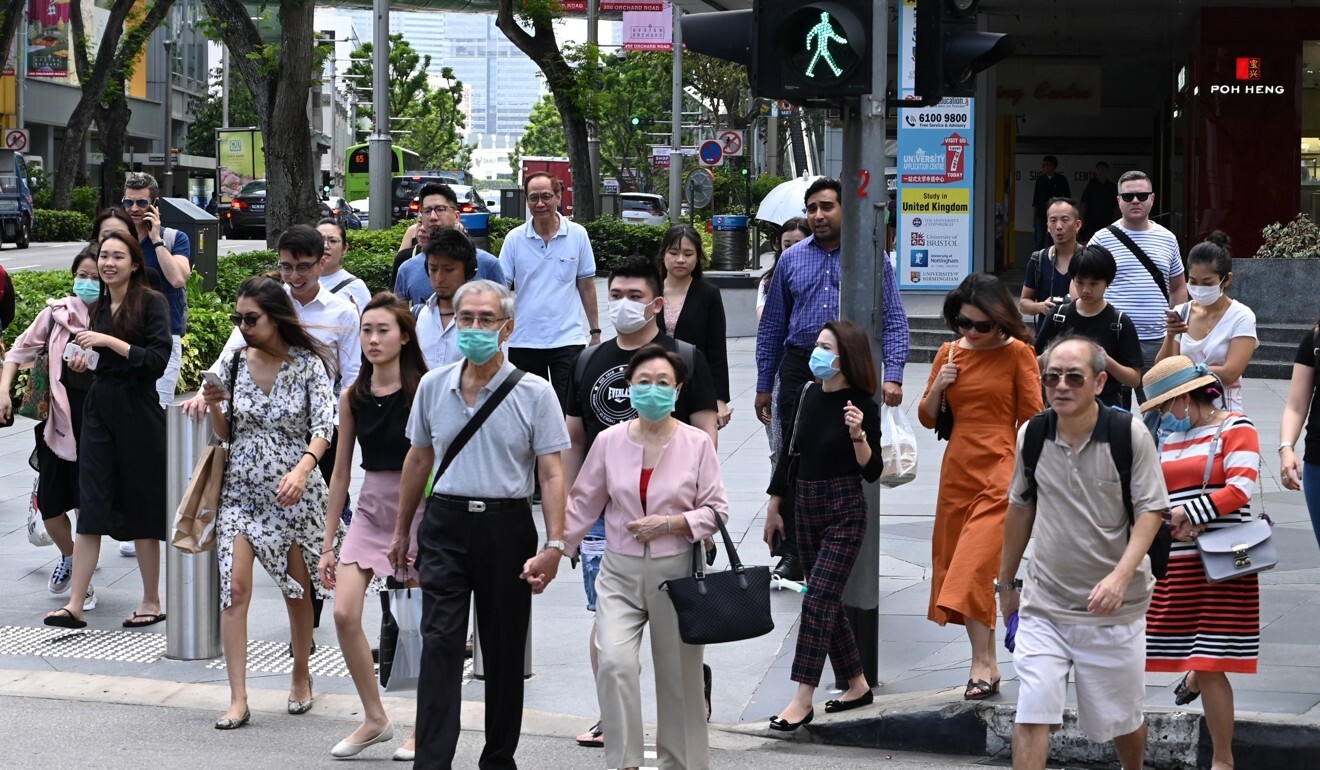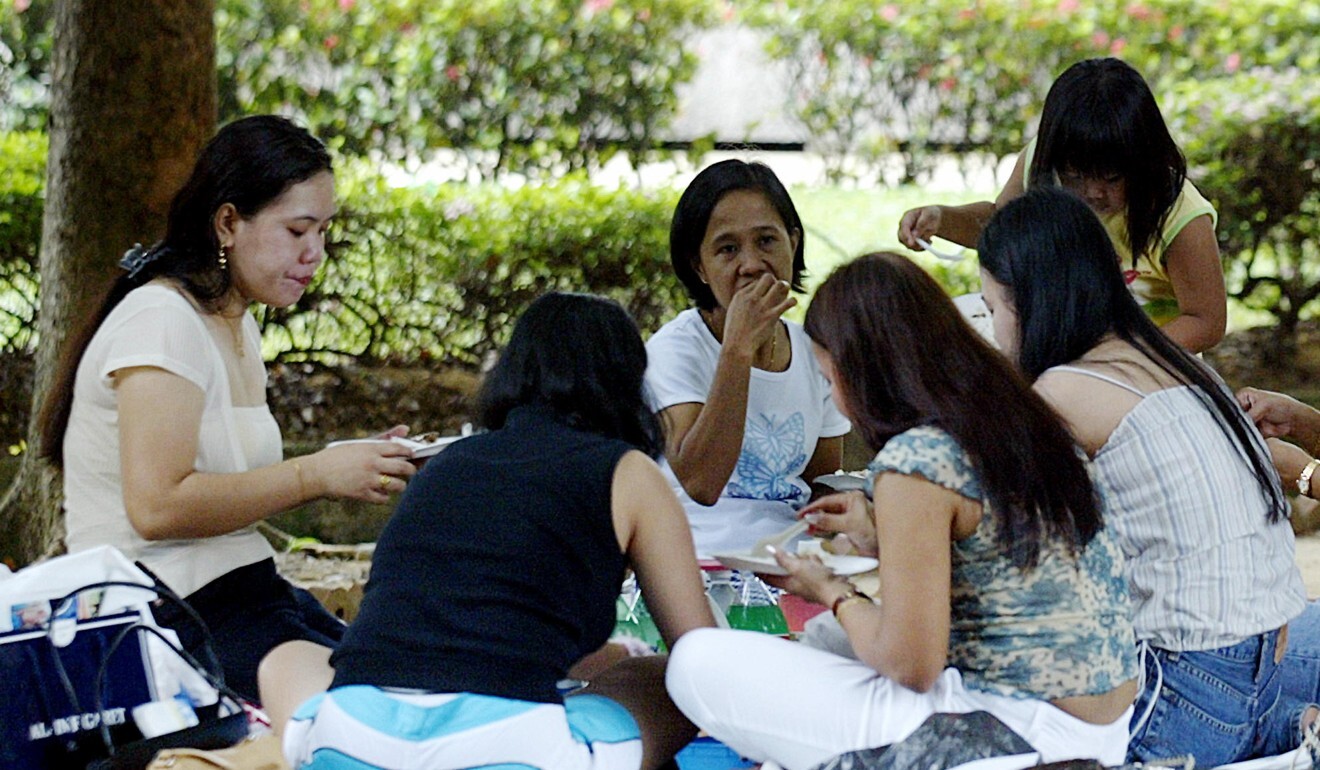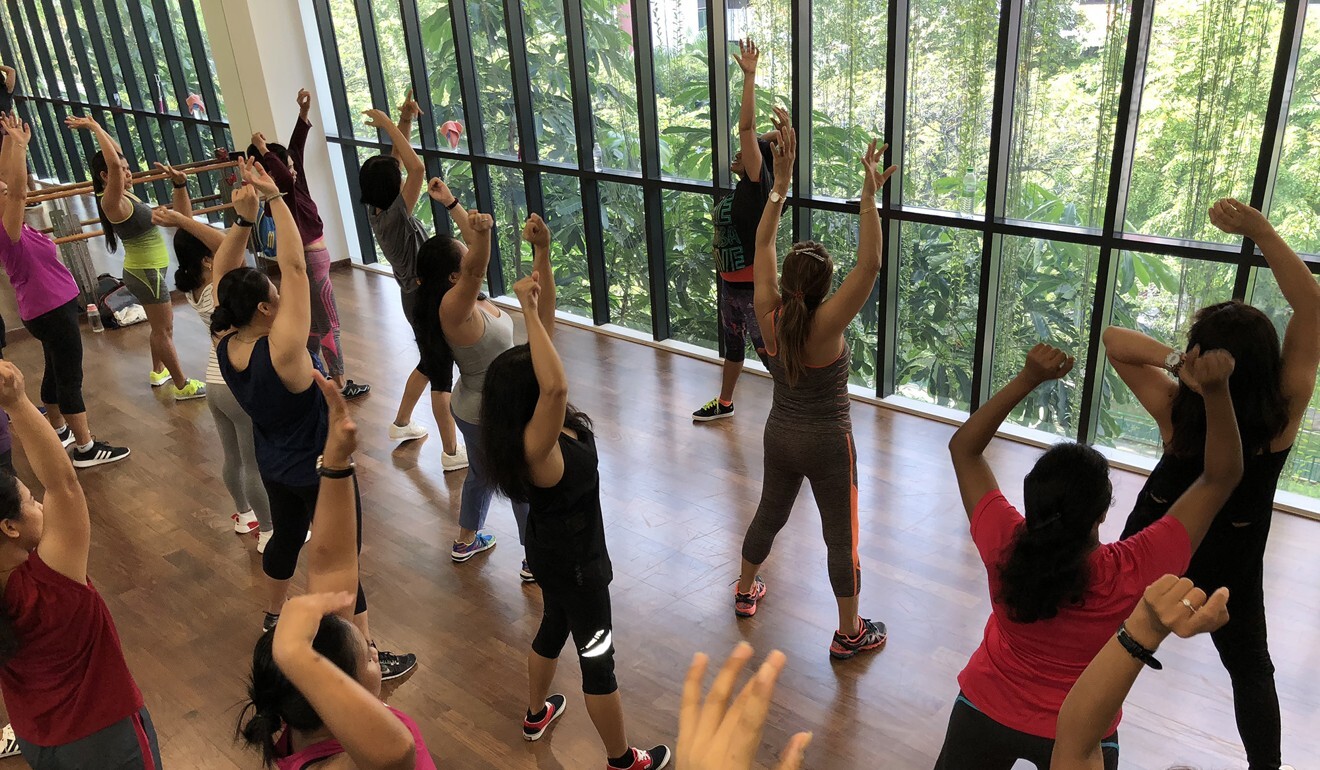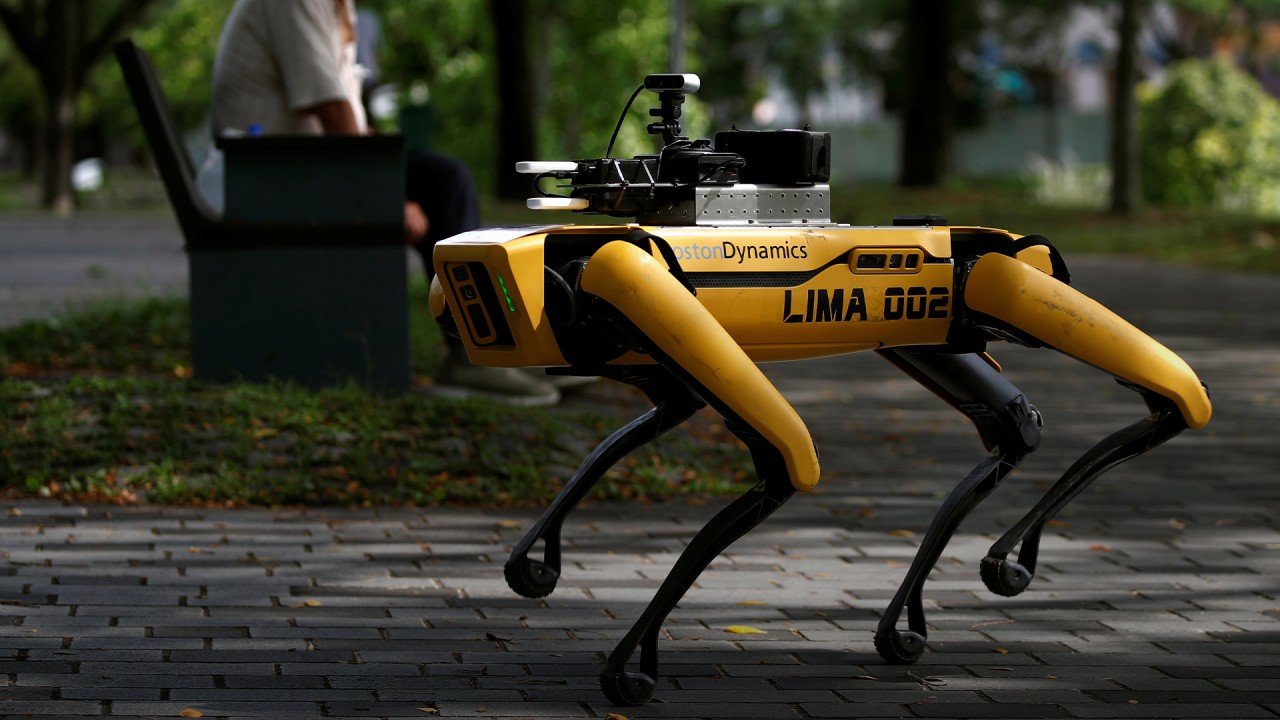
Coronavirus: Singapore’s domestic workers had more work, less contact with loved ones during ‘circuit breaker’
- Advocacy groups said there was a rise in complaints from helpers during the partial lockdown
- They have urged employers to give helpers sufficient time off so they can rest and connect with friends and family online

Singapore is set to start reopening its economy from Tuesday as it eases the partial lockdown measures imposed to combat the coronavirus pandemic. But for the city state’s foreign domestic workers, life will take a little longer to return to normal.
Earlier this month, Singapore’s Manpower Ministry urged domestic helpers to stay at home on their days off, unless they were running essential errands or buying meals. This was in keeping with the rules for the rest of the city state’s residents, authorities said, as they called on employers to allow domestic workers to have their rest day at home.
Singapore has an estimated 255,000 domestic helpers, many of whom come from Indonesia, the Philippines and Myanmar. Most helpers would be living with their employers in flats ranging from about 430 sq ft to 1,400 sq ft – this is the size of Singapore’s public housing apartments that are home to about 80 per cent of the 5.6 million population.
About one in five households in Singapore employs a domestic helper, and migrant worker advocacy groups have noted a spike in calls made to their hotlines since the city state’s “circuit breaker” coronavirus restrictions were implemented in early April.

They said domestic helpers, who had been advised to follow strict physical distancing measures since late March, were experiencing problems ranging from heavier-than-usual workloads to conflicts with employers who were working from home.
The Centre for Domestic Employees (CDE), a trade union-backed initiative that aims to champion the fair treatment of workers, said calls to its helpline doubled in the month after the lockdown began. Three in 10 calls were about employment-related issues.
The number of helpers who have run away from their employers in Singapore has also doubled in the past two months, according to the Foreign Domestic Worker Association for Social Support and Training (Fast).
Yeo Guat Kwang, CDE chairman, said that domestic workers were facing an increased workload as most of their employers are now working from home, resulting in “a need to clean the house more and cook more frequently for the family”.

“Some [workers] are also looking after the elderly or young in the family throughout the day while the parents focus on work,” he said.
Similar complaints have been made elsewhere in the region – in Malaysia, online news portal Malaysiakini found that a number of the country’s estimated 400,000 domestic workers had been forced to work on their rest days in March and April, when the country’s coronavirus movement restrictions were in place.
In Hong Kong, which also has about 400,000 domestic workers, an online survey of 1,127 of them done by NGOs in the city found that most had worked more in March, when certain social distancing restrictions were in place, than at any other time this year. At the height of the pandemic, many employers kept their helpers at home on their day off.
A 33-year-old domestic helper in Singapore, who only wanted to be known as Lisa, said that one of her friends has had difficulty coping with the added workload and even considered leaving her job to return home.

“She has to stay awake until almost midnight to cook food [for her employer’s son] and when she wakes up, the kitchen would be very messy,” she said. “She felt like she wanted to go home because of the workload.” Lisa, who is from the Philippines, added that being unable to go out on rest days has been “very suffocating”.
Jaya Anil Kumar, a case manager at the Humanitarian Organisation for Migration Economics (HOME) NGO in Singapore, said longer work hours also resulted in less contact with friends and family.
“At this time of increased isolation, it’s important for [helpers] to have access to their mobile phones to be able to speak to their loved ones back home or to their friends, whom they are unable to meet,” she said.
Jaya said that the organisation is an advocate for a live-out option for domestic workers, adding that involved parties, such as employers, authorities and agents should adopt a "rights based framework".
“A live-out option will make domestic workers less vulnerable to exploitation, and will be a way to regulate their working hours and reduce isolation faced by many domestic workers. There are ways to explore covering costs involved, including utilising levies paid by employers,” she said.
Yeo, of the CDE, noted that helpers were feeling increasingly stressed and tired but feared a backlash if they articulated these concerns to their employers.
A live-out option will make domestic workers less vulnerable to exploitation
“When they call our helpline, our staff will advise them accordingly, and where possible also talk to the employers to let the foreign domestic workers have autonomy to space out the work duties, or take short breaks in the day to recharge,” he said, adding that rest days were a “fundamental right of any worker”.
Some employers, however, are taking extra steps to ensure their domestic workers’ well-being. Among them is housewife Wendy Teo, 36, who said that she would order in meals on her helper’s day off to ensure that she would get a proper rest.
“Usually, there would be a pay deduction for domestic helpers when they go for off days and we would minus S$25. But we decided not to take the money since she has to stay at home to rest,” she said.

01:26
Singapore deploys robot to promote safe distancing among park visitors
The Philippine embassy in Singapore, which has received three complaints of domestic helper abuse and two reports of runaway workers since coronavirus restrictions were first imposed, said Filipino helpers should come forward if they are feeling distressed. It said it operates a temporary shelter for domestic workers who face physical or verbal abuse from their employers.
“We encourage [domestic workers] to continue to meet with their friends only through social media,” said an embassy spokesman. “There are still many activities that can be carried out online so that they will minimise their loneliness.”